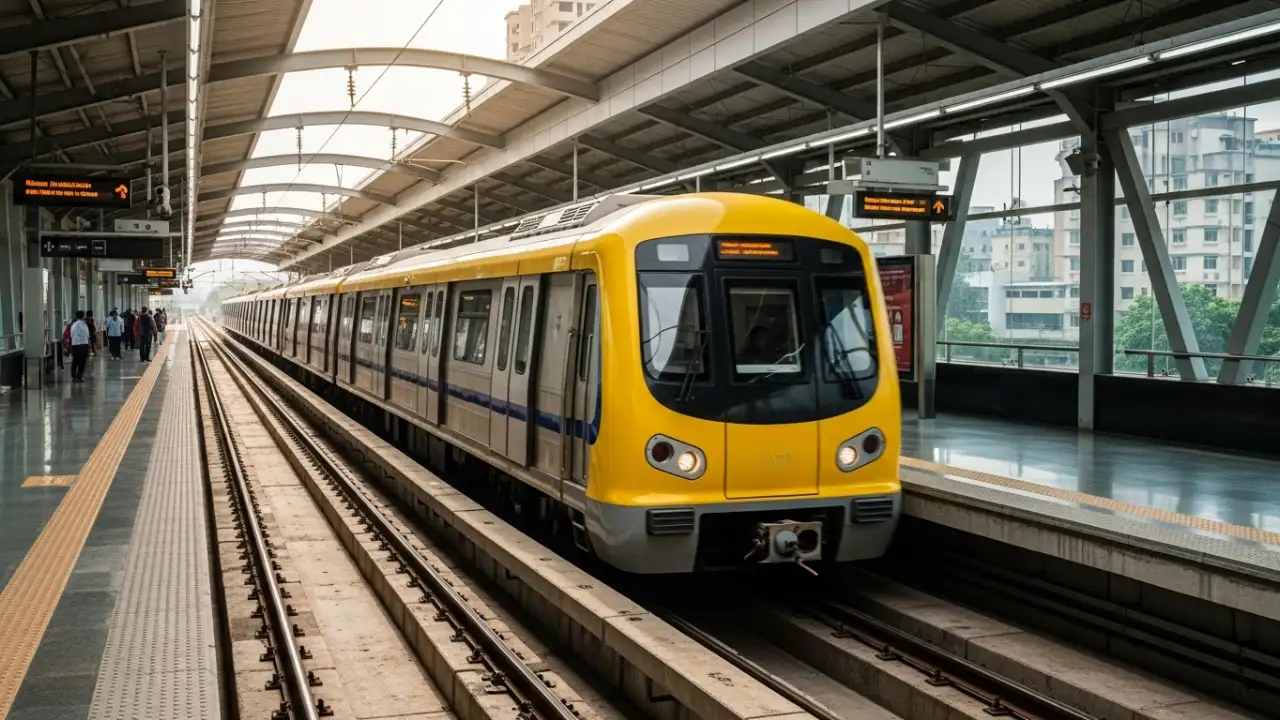Bengaluru Metro Rail Corporation Ltd (BMRCL) is gearing up to launch a limited service on the long-delayed 19 km Yellow Line—the Electronics City corridor—from RV Road to Bommasandra by the end of August. The company intends to commence operations with three trainsets and seven stations, delivering a 20-minute frequency that connects South Bengaluru’s key nodes.
After missing multiple deadlines since its expected December 2021 debut, the fully elevated corridor finally reached operational readiness. With seven out of 16 stations cleared for service—RV Road, Jayadeva Hospital, Central Silk Board, Kudlu Gate, Hosa Road, Infosys Foundation Konappana Agrahara and Bommasandra—the Metro line is now in its pilot phase. Faced with train shortages, BMRCL has outlined contingency options including full stretch operation with longer intervals, partial services between Central Silk Board and Bommasandra, or targeted runs between Ragigudda and Bommasandra to prevent overcrowding at RV Road.
Officials note the fourth train is expected next week, with an additional five CBTC‑enabled rakes by October, allowing capacity expansion to six-minute headways. Safety clearances remain pending, with an Independent Safety Assessment under review before inspection and final approval by the Commissioner of Metro Railway Safety. Experts believe even a phased launch will rapidly ease congestion in Electronics City, a major employment hub previously reliant on road transport. The initial run is expected to ferry thousands of daily IT commuters, offering a low-carbon alternative to car and bus travel.
BMRCL also plans to request a high-profile launch, possibly inviting the Prime Minister to inaugurate both the Yellow Line and Nagasandra–Madavara Green Line extension, while also laying groundwork for future corridors under Phase 3A—Hebbal–Sarjapur—and the ORR‑West Orange Line. The prolonged delay—linked to coach supply bottlenecks due to India–China trade issues, Make in India compliance, sanctions, and pandemic-led disruptions—has strained Bengaluru’s mobility rhetoric. Yet this move signifies a critical pivot, signalling adaptable urban transit strategy that prioritises both commuter demand and sustainable growth.
Also Read : Nationwide Trade Union Strike Cripples Key Sectors Across India


